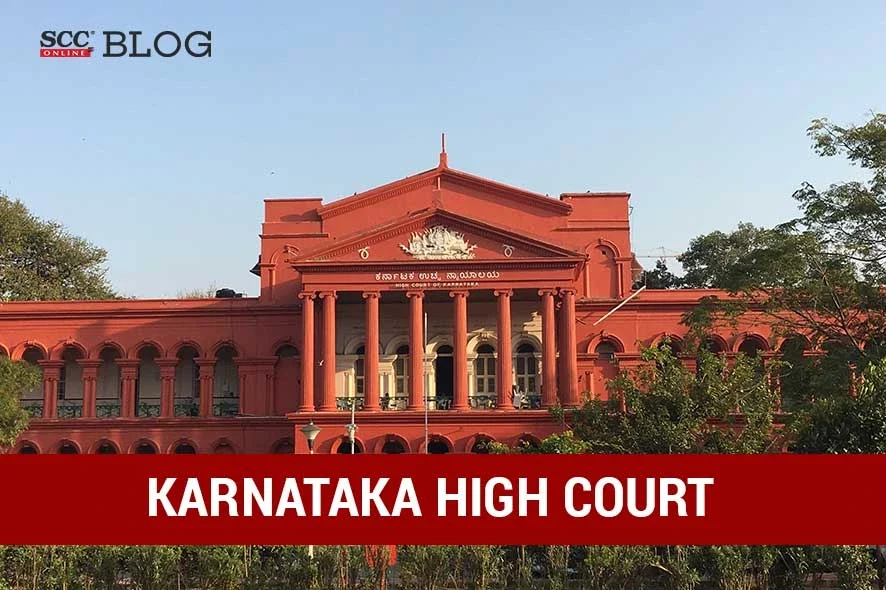Karnataka High Court: In the instant appeal wherein the Court considered the question that whether the aspect of insisting the deceased to repay the loan borrowed and telling him to die amounts to abetment to suicide or not; the Bench of Shivashankar Amarannavar, J.*, acquitted the appellant/accused stating that having advanced money to the deceased the accused uttered some abusive words and threatened to take his life; but that by itself is not sufficient to constitute the offence under Section 306 of Penal Code, 1860. The Court further pointed out that in the case of suicide, mere allegation of harassment of the deceased by another person would not suffice unless there be such an action on the part of the accused which compels the person to commit suicide; and such an offending action ought to be proximate to the time of occurrence. “Whether a person as abetted in the commission of suicide by another or not, only be gathered from the facts and circumstances of each case”.
Background: The deceased had a friendship with the accused and had borrowed a loan from her. However, it was claimed that the accused was threatening the deceased to repay the loan. It was alleged that under duress, the deceased hanged himself on 25-04-2019. The deceased was shifted to a hospital where he died on 10-05-2019.
A crime against the accused was registered in the Bannerghatta Police Station for the offence punishable under Section 306 of IPC. After investigation, charge sheet came to be filed and the case committed to the Sessions Court. The Sessions Court convicted the accused for offence under Section 306 of IPC.
Aggrieved with the afore-stated conviction the accused knocked the doors of the High Court.
Contentions: Counsel for the accused argued that the evidence on record is not sufficient to attract ingredients of abetment as defined under Section 107 of IPC and ingredients of Section 306 of IPC. It was argued that mere demand of repayment of the money borrowed will not amount to abetment to commit suicide and merely telling the deceased to go and die does not amount to abetment, since, there is no mens rea or intention on the part of the appellant/accused to drive the deceased to commit suicide.
Per contra, the respondent submitted that the Trial Court has rightly convicted the appellant/accused on proper appreciation of evidence.
Court’s assessment: Perusing the facts and contentions of the case, the Court was of the view that the Trial Court had erred in convicting the accused.
The Court stated that as per the definition of abetment under S. 107 of IPC, there should be instigation to do that thing and then it amounts to abetment. A person is said to have instigate another to an act when he actively suggests or stimulates him to act by means of language, direct or indirect, whether it takes the form of express solicitation, or of hints, insinuation or encouragement.
The Court noted that the accused insisted the deceased to repay the money borrowed by him. There was no intention on the part of the accused to drive the deceased to commit suicide. The accused was interested in getting back the money lent to the deceased. It was further pointed out that the appellant/accused was interested in getting back the said money. She had no intention of taking the life of the deceased. Therefore, there is no clear mens rea on the part of the accused to abet the deceased to commit suicide.
It was further noted that during cross-examination, the brother of the deceased stated that the deceased has borrowed money for purchase of lorry and he had sustained loss in the lorry business. As per the Court, “That may be one or the reason for the deceased to commit suicide”.
The Court further pointed out that the deceased had left a suicide note stating that he is unable to repay the loan and hence taking the extreme step.
The Court noted that the Trial Court placed much reliance on the evidence wherein accused was present in the house of the deceased along with her daughter and deceased committed suicide. However, there is no evidence on record to show that at what time the appellant/accused has came to the house of the deceased. “Looking from any angle, the act of the appellant/accused harassing the deceased for repayment of money borrowed and threatening him to take his life, does not amount to abetment”.
The Court was of the view that the Trial Court had erred in appreciating the evidence and therefore the conviction of the appellant/accused was set aside.
[Mangala Gowri v. State of Karnataka, 2023 SCC OnLine Kar 64, decided on 07-09-2023]
*Judgment by Justice Shivashankar Amarannavar
Advocates who appeared in this case :
For appellant- Siddharth. B. Muchandi, Advocate
For respondent- Rangaswamy. R., HCGP







